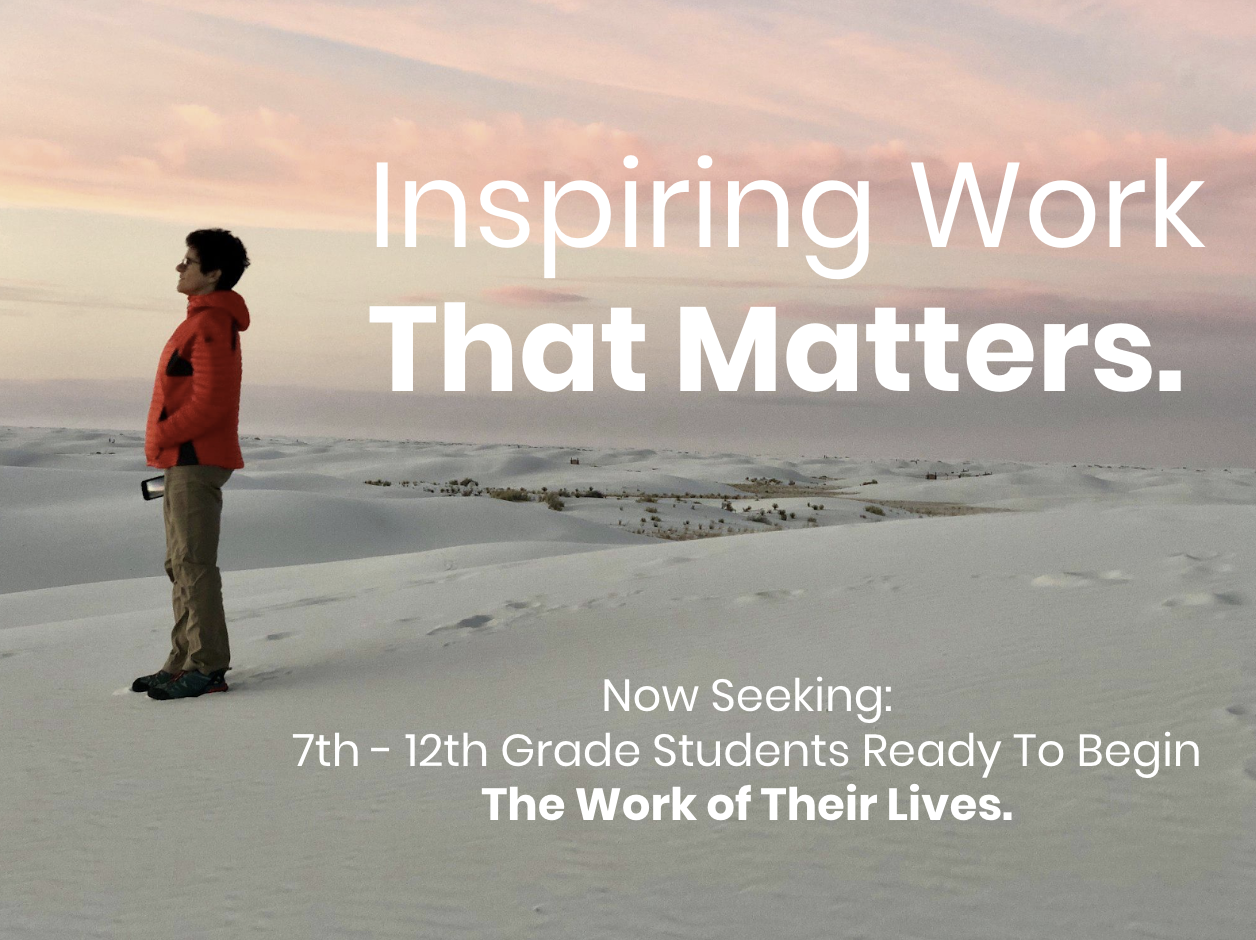Why Skills-Based Education?
There’s no question we are asked more often than this one: “What makes Stone different?”
There are many ways that the experience at Stone is different, but the key differentiator in our teaching and learning practices is that we are a competency-based school which uses the pedagogy of problem-based learning so that our students can regularly practice a set of highly transferable skills which enable them to solve complex problems both within their discipline and everywhere else in the world as well.
We believe in this model because we believe that our students’ futures – the kinds of colleges they will attend, the kinds of jobs they will have – are almost impossible to predict right now. And yet, that is exactly what schools have historically tried to do: predict the future and use that prediction to determine which novels, or test questions, or specific math equations, students will “need” in the future.
There’s social utility in broadly shared curricula, but that shared curricula doesn’t address the core goal of schools everywhere: to prepare students for the future (while empowering them within their present).
And yet, we do have ways to understand what our students’ futures might be like.
Every five years, the World Economic Forum releases The Future of Jobs Report. The most recent edition, released in April 2023, surveyed 803 companies collectively employing more than 11.3 million workers across 27 industry clusters and 45 economies and came to the conclusion that transferrable workplace skills are the hiring priorities for successful businesses – not any specific content, or SAT score, or even degree. The report argues that because of historic social, technological, and financial uncertainty, future jobs are radically unpredictable, and it will be prospective employees who can show evidence of those transferrable workplace skills – like analytical thinking, creative thinking, leadership, resilience, and empathy – who will be priority hires by 2027.
There is near consensus on this perspective. In a recent Forbes magazine article titled, “From Jobs to Skills: What The Future of Work Will Look Like”, Matthew Daniel, Senior Principal at Guild, comments: “Skills have never mattered more...When employers hire based on skills, rather than things like degree requirements, they create a more diverse and tailored talent pool, driven by insights — which is absolutely necessary to keep up with the pace of change.”
Stone was founded on exactly these key principles: that the future is unpredictable, that the only way to prepare students for unpredictability is to practice future-forward skills which will enable them to learn, adapt, and thrive in unpredictable ecosystems and contexts.
Only 27% of all college graduates work in fields related to their major or degree. Badges, certifications, and degrees are not particularly predictive of future success – but skills like adaptability, problem-solving, and capacity to learn in new contexts all very much are.
None of which is to say that “content” is problematic – exactly the opposite, in fact. We have each had transformative learning moments while reading an extraordinary novel, or puzzling through a challenging problem set, or working through a complex research project. We want our students to have those experience regularly – even daily! – if possible.
But as they do, we want to be sure that they understand deeply why we are asking them to have those experiences, why they are doing that work.
And it’s because we believe there is a set of skills embedded in that work which will serve them well past, say, the end of The Great Gatsby. Skills which, if they are clearly identified and intentionally practiced regularly across classes and disciplines and grade levels and learning experiences, will prepare them to find their way in a world which we simply aren’t able to predict.
See Also: How We Teach at Stone; We’re Always Failing Forward; The School That Changed My Life;
